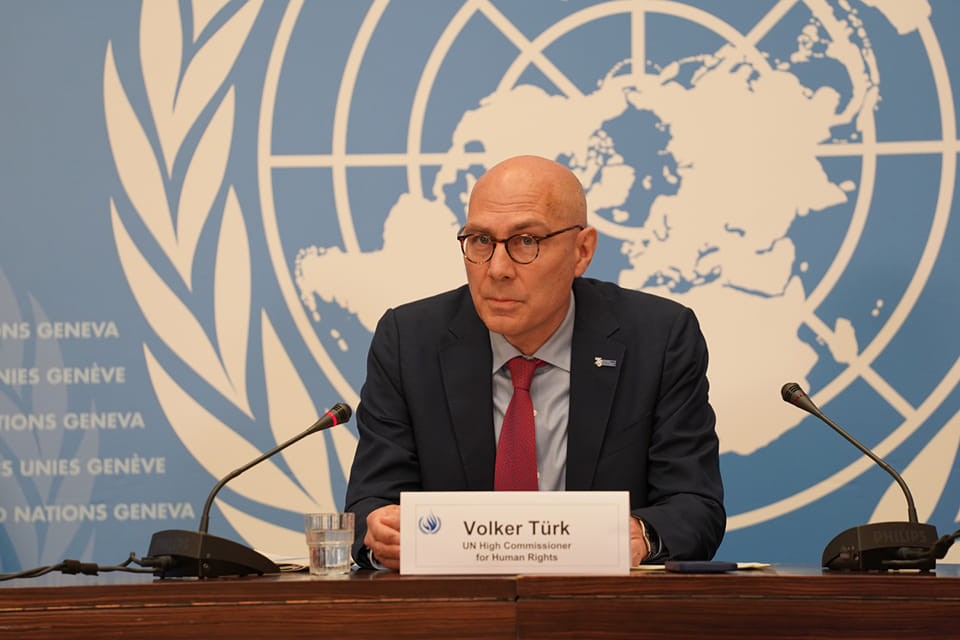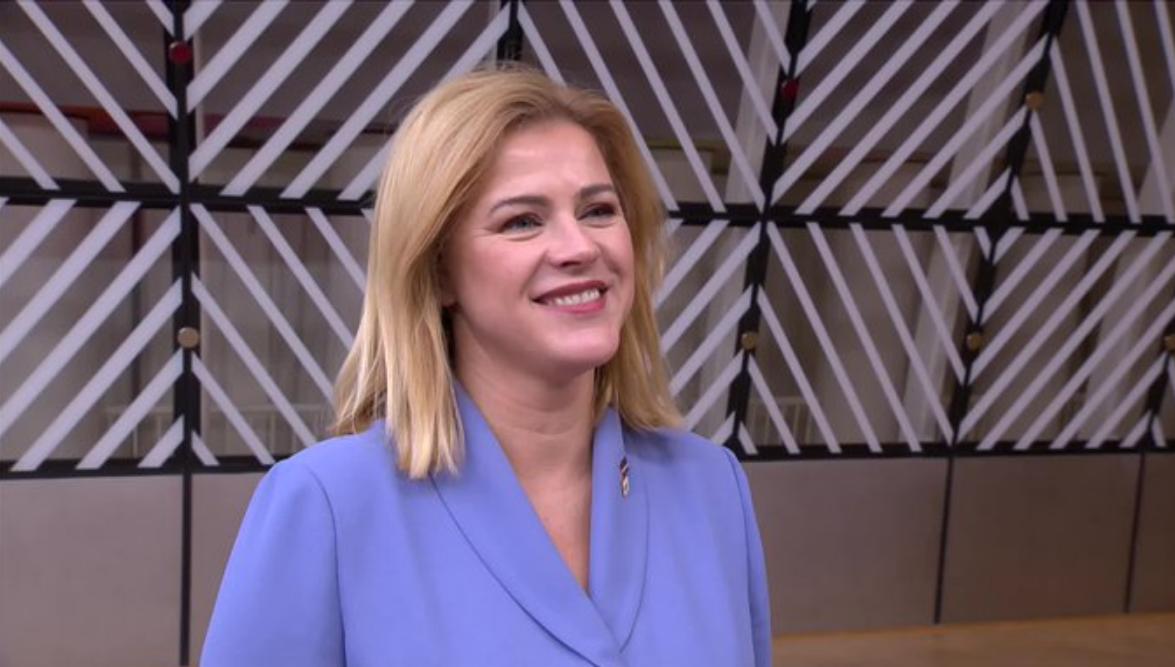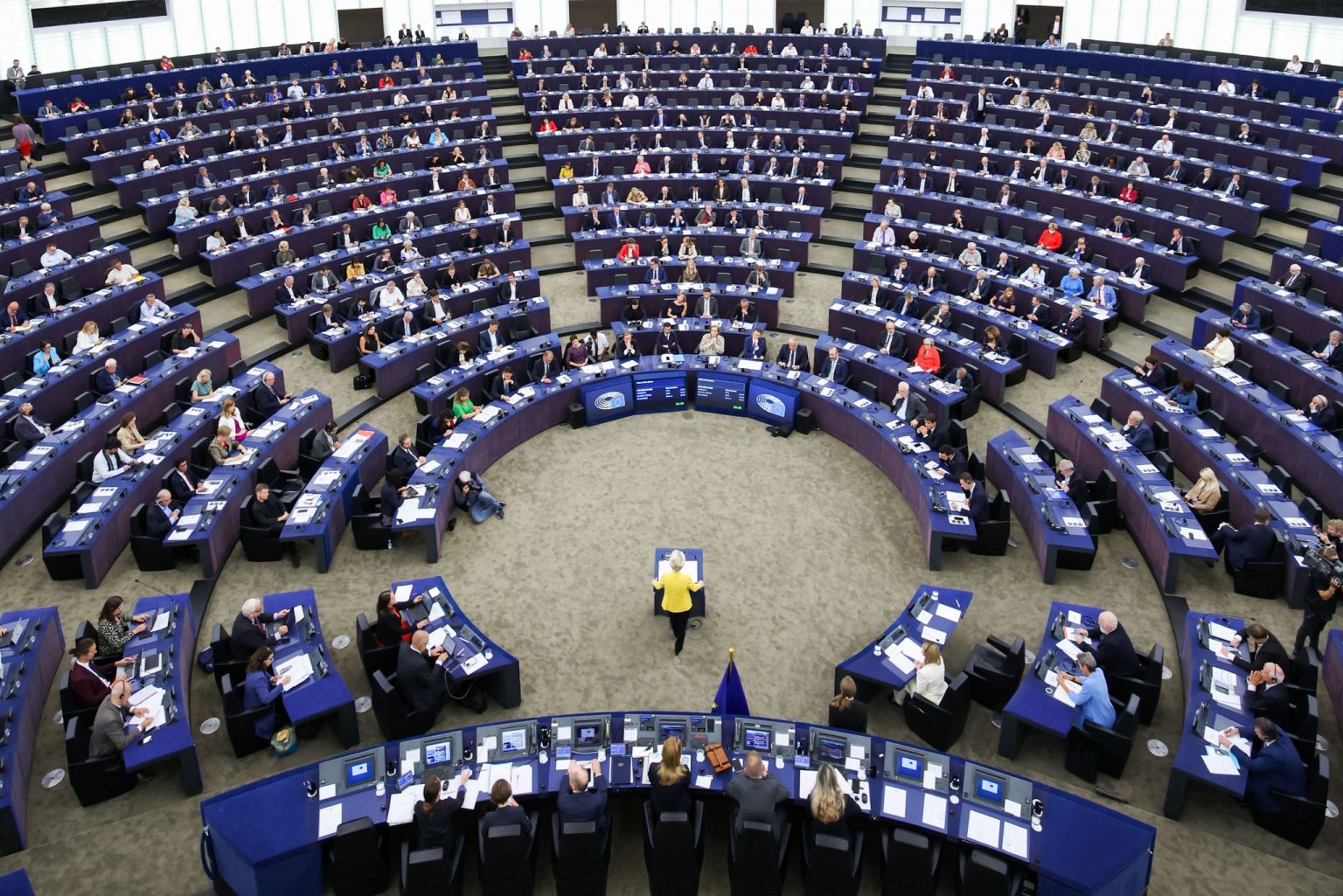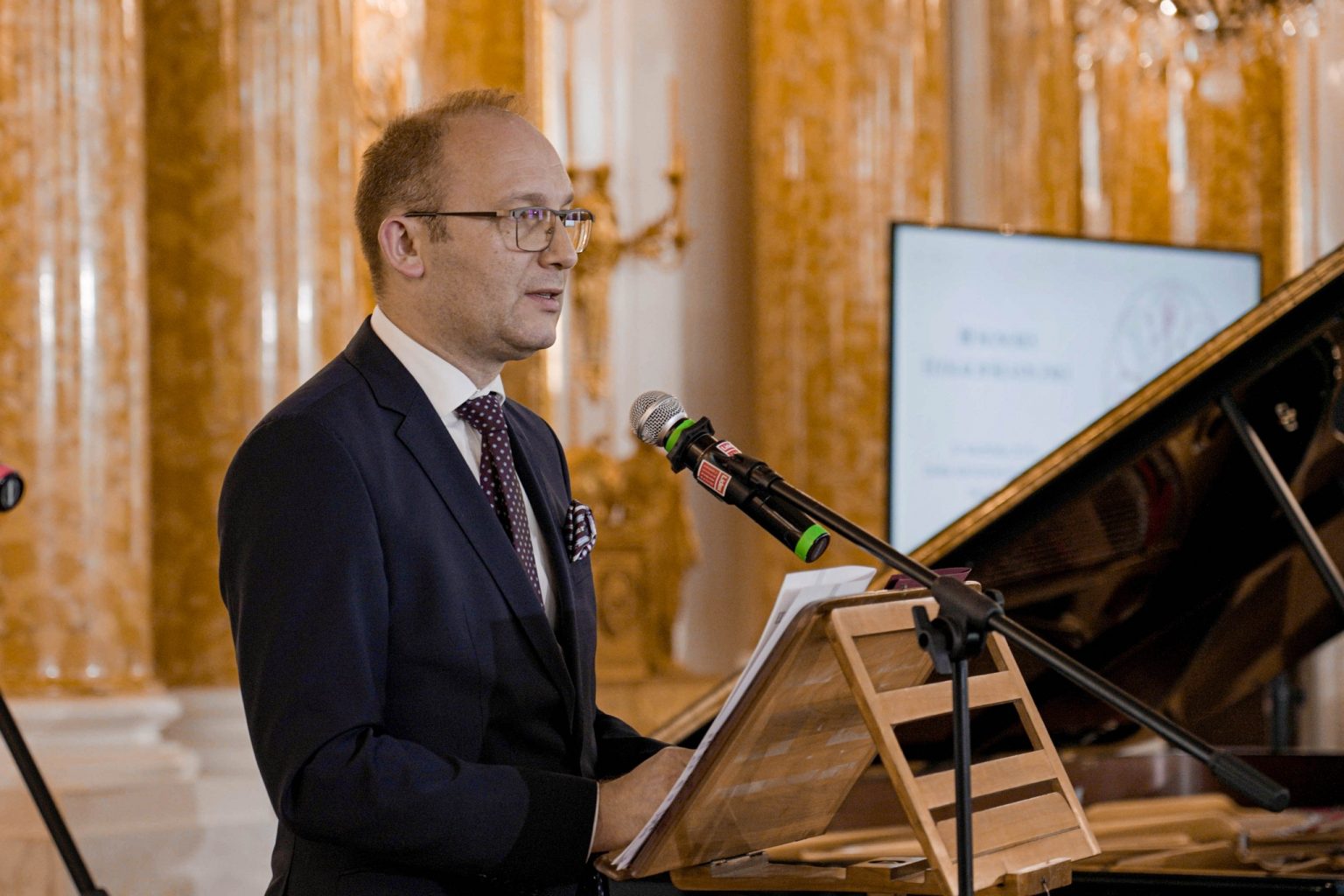World
Out in the World: LGBTQ news from Europe and Asia
United Nations Human Rights Committee raised concerns over LGBTQ rights in US

United Nations

In its review of the U.S.’ record on civil and political rights released earlier this month, the United Nations Human Rights Committee condemned a flood of discriminatory state legislation restricting the human rights of LGBTQ
The committee’s summary was first reported on by Human Rights Watch.
“The United States ratified the International Covenant on Civil and Political Rights (ICCPR) in 1992. Every four years, the HRC reviews laws and policies in countries that have ratified the treaty to evaluate where they are in compliance with the treaty and where they fall short. The review of the US was postponed during the COVID-19 pandemic, making this the first review of the US in nine years.
Among the worrying U.S. laws are those restricting access to gender-affirming care and prohibiting transgender children from participating in school sports or using bathrooms consistent with their gender identity. Also concerning are laws banning books as well as prohibiting classroom instruction on sexual orientation or gender identity, LGBT people and their families in schools.
In its concluding observations, the committee expressed concern about laws limiting transgender people’s access to healthcare, athletics and public accommodations, and restricting discussions of race, slavery, sexual orientation and gender identity in schools. It underscored the prevalence of discrimination against LGBT people in the U.S., including in housing, employment, correctional facilities and other domains.
The committee also condemned derogatory speech aimed at LGBT people, including from public officials, and violence against LGBT people and members of other minority groups.”
Russia

TNT Music, which is owned by parent company Fonbet, the largest sports betting company operating in Russia and Kazakhstan, altered a video of the South Korean K-Pop boy band Seventeen’s hit song “God of Music” that showed a rainbow.
TNT Music transformed the rainbow featured in the original video into a gray cloud.
According to the English-language Russian news outlet the Moscow Times, TNT Music appears to have erred on the side of caution after a Moscow court fined its owner Fonbet TV 1 million rubles ($10,800) in July for violating the country’s draconian “LGBT propaganda law” when it aired Finnish singer Alma’s music video for the song “Summer Really Hurt Us.”
In a March 2019 article in British publication Gay Times, Alma confirmed she is a lesbian and in a relationship with Finnish poet and human rights activist Natalia Kallio.
The channel faces another fine of up to 16 million rubles ($174,000) on four administrative charges of spreading “LGBT propaganda” among minors, according to Russian state media.
The Russian Federal Service for Supervision of Communications, Information Technology and Mass Media, abbreviated as Roskomnadzor, has been directed to ban any websites that contain information about LGBTQ identities or anything that could be construed as promoting LGBTQ related materials.
According to the Moscow Times, there was fear that the rainbow and an all-boy band would provoke Roskomnadzor into fining TNT again.
Latvia

In a Nov. 9 vote, Parliament voted to allow same-sex couples to establish civil unions-partnerships, which gives same-sex couples in this Baltic state legal recognition, but fewer rights than married couples.
The country’s Prime Minister, Evika Siliņa, issued a statement applauding the actions by lawmakers.
“This is a good day. Society has taken an important step in creating a modern and humane Latvia. With the Saeima supporting the introduction of registered partnerships, the state has fulfilled its legal obligations and given a clear signal that all families are important. Thanks for the intelligent vote!” the prime minister said.
The action by Latvia’s Parliament comes five months after lawmakers in Estonia approved a law that extended marriage rights to same-sex couples in that Baltic nation. However, while the new law allows hospital visiting rights, as well as some tax and social security benefits, the law falls short in other critical areas say LGBTQ rights activists.
Speaking with Reuters, Kaspars Zalitis, a gay rights activist, noted same-sex couples would still not be able to adopt children and would continue to face inheritance issues.
“This is a great beginning … Latvia is not one of the six countries in the European Union that have no recognition for same-sex couples,” he said.
European Union

A new global call for civil society organizations projects with a projected total budget of 36 million euros ($38.47 million) under a expanded program on Human Rights and Democracy (part of NDICI/Neighborhood, Development and International Cooperation Instrument – Global Europe) was announced on Nov. 7.
The present Global Call for Proposals targets:
- “Fair, Accountable and Inclusive Trade and Business – Flagship Action on Business and Human Rights, Forced and Child Labour and Indigenous Peoples’ Rights;”
- Global, regional or multi-country projects targeting high-risk sectors, value or supply chains that will contribute to the accompanying measures of the upcoming Corporate Sustainable Due Diligence Directive and Forced Labor Regulation.
- CSOs will be better equipped to monitor, report, access remedies, partner with the private sector and/or social partners and advocate for the implementation of relevant EU and international human rights principles and legislations. Projects financed will contribute to the sustainable implementation of the Global Gateway Strategy by reinforcing relevant social and environmental standards.
- “Global actions on human dignity, non-discrimination and inclusion;”
- Projects will promote equality, inclusion and respect for LGBTQ+ persons at global, regional or national level and more specifically in Sub-Saharan countries where consensual same-sex sexual acts between adults in private are criminalised. Priorities will include advocacy for anti-discrimination laws, support to social inclusion and empowerment of CSOs working on LGBTIQ rights.
- Promote Freedom of Religion or Belief, and prevent and combat discrimination, intolerance and violence on grounds of religion or belief through regional projects. Under this lot, intersectionality between freedom of religion or belief and gender issues is encouraged.
Projects will be global, multi-country or regional. The lead applicants should be international organizations given the size of the grants and geographic scope, with at least one local co-applicant and mandatory financial support to local organizations.
France

Attorneys representing Groupe des familles LGBT filed a criminal complaint against Seattle-based Amazon Prime for replay of the Sept. 24 soccer match between teams Paris Saint-Germain and Marseille, where homophobic chants were clearly audible.
According to the French English-language news outlet Le Monde, During the match between the bitter rivals, thousands of Paris Saint-Germain supporters chanted homophobic slogans referring to their opponents. An Agence France-Presse reporter covering the game said the chanting in PSG’s Parc des Princes stadium went on for around 10 minutes.
Four PSG players, including Randal Kolo Muani and Ousmane Dembélé, were given suspended one-match bans for also chanting insults directed at the Marseille players while celebrating their 4-0 thrashing of their opponents.
In the legal complaint filed, Groupe des familles LGBT noted that under the French criminal code, that while broadcasters are not responsible for offensive content that may occur during a live match they are liable for content offered on replay.
The complaint says that during the replay, “you can hear several chants from fans coming from the stands, some of which are distinctly homophobic in nature.” Two other LGBT rights groups, Mousse and Stop Homophobie, have said they will also join the complaint against Amazon for public insults and incitement to hatred or violence against people based on their sexual orientation.
An Amazon spokesperson told AFP the match was no longer available on Prime Video at the time the complaint was announced and that, as a broadcaster, it did not condone the comments or behavior of certain fans.
“Homophobia has no place in sport or in society, and we condemn it, like all forms of discrimination, in the strongest possible terms,” the spokesperson said.
Poland

In March 2019, local elected officials of the Polish conservative Law and Justice (PiS) party passed a regional government resolution backed by Radosław Brzózka, who led a vocal and vitriolic anti-LGBTQ campaign. Brzózka, is now chief of staff to Education Minister Przemysław Czarnek, who labeled LGBTQ people, “deviants who do not have the same rights as normal people.”
Earlier this month after the threat of pulling 3.6 million Polish zloty ($867,955) in funding by the European Union the local council rescinded the 2019 resolution.
According to the Polish investigative journalism media outlet OKO.press, in Świdnik, Jakub Osina, a local elected official announced that the resolution has now been repealed and replaced with one that makes no mention of LGBTQ issues but pledges to protect “the moral development of the young generation and the institution of the family based on Christian values.”
In September 2021, the executive branch of the EU, the European Commission, sent letters out to the governors of five of Poland’s provinces warning that pandemic relief funds totaling over 126 million euros ($150 million) will be withheld over anti-LGBTQ measures passed in their jurisdictions.
Poland has seen a resurgence in the past three years of rightwing religious ultra-conservative groups backed by nationalistic extremists in this heavily Catholic country of 38 million, which have led to passage of measures to restrict pride parades and other LGBTQ-friendly events from taking place.
Proponents of these measures claim the necessity of the provinces to be “free of LGBTQ ideology” saying this is mandated by average Poles as well as by the anti-LGBTQ views of the Catholic Church.
ILGA-Europe, a Brussels based advocacy group promoting the interests of LGBTQ and intersex people, at the European level, in a statement it sent to the Washington Blade in June 2021 after the EU letter was issued, noted that both Hungary and Poland, another EU country in which lawmakers have sought to restrict LGBTQ rights in recent years are at odds with the EU position on LGBTQ people.
“For quite some time now, we’ve been informing EU ministers about systematic breaches of EU law committed by Hungary and Poland, which impact on LGBTI rights and the lives of LGBTI people,” says ILGA-Europe.
The threat of losing funds led many Polish local authorities to begin repealing the resolutions local non-profit Polish news outlet Notes from Poland reported.
Indonesia

Roughly a hundred conservative Muslims took to the streets of the Indonesian capital city protesting the upcoming concert by British rock band Coldplay on Tuesday at Jakarta’s Gelora Bung Karno stadium.
The protestors are angered by the group’s support of the LGBTQ community. Coldplay’s lead singer Chris Martin has been known to wear rainbow colors and wave gay Pride flags during performances.
The Asian leg of Coldplay’s “Music Of The Spheres World Tour” has been a sell out in every major city on the tour. The AP reported that more than 70,000 tickets were scooped up in less than two hours when sales opened in May as Jakarta is one of the band’s top streaming hubs with 1.6 million fans in the city.
The Associated Press reported that demonstration was organized by Islamist group the 212 Brotherhood Alumni, whose name refers to the Dec. 2, 2016, mass protests against the polarizing Christian politician Basuki Tjahaja Purnama. The crowd chanted “God is Great” and “We reject Coldplay” as they marched to the heavily guarded British Embassy in Jakarta.
“We are here for the sake of guarding our young generation in this country from efforts that could corrupt youth,” Hery Susanto, a protester from West Java’s city of Bandung told Associated Press journalist Fadlan Syam. “As Indonesian Muslims, we have to reject the Coldplay concert.”
Novel Bamukmin, a protest coordinator, gave a speech criticizing the government for allowing the band to hold a concert in Indonesia, the world’s most populous Muslim-majority country. He said if the concert was not canceled, thousands of protesters would confront the band on its way from the airport.
“Coldplay has long been a strong supporter of LGBT and its lead singer is an atheist,” Bamukmin said, standing on the top of a truck, “We must reject their campaign, their concert here.”
Security concerns in this deeply conservative nation have previously caused other Western musical artists who support the LGBTQ community to cancel their scheduled shows.
Lady Gaga canceled her sold-out show in Indonesia in 2012 over security concerns after Muslim hard-liners threatened violence if the pop star went ahead with her “Born This Way Ball” concert.
Additional reporting by Human Rights Watch, the Moscow Times, Agence France-Presse, Le Monde, Reuters, OKO.press, the Associated Press, and the BBC.
India
Activists push for better counting of transgender Indians in 2026 Census
2011 count noted 488,000 trans people in country

India is preparing to conduct a nationwide Census in April, the first since 2011.
Interim projections based on the previous Census placed India ahead of China as the world’s most populous country. A Technical Group on Population Projections projection in July 2020, chaired by the Registrar General of India, estimated the country’s population in 2023 was 1.388 billion. Transgender Indians are now raising concerns about the data collectors and their sensitization.
Activists have raised concerns about whether data collectors are adequately sensitive to the community ahead of the Census. Government training material emphasizes household engagement, data privacy and sensitivity while asking personal questions, but publicly available flyers do not outline specific guidance or training related to recording trans identity during enumeration.
Concerns around the counting of trans people in India are not new.
The 2011 Census recorded around 488,000 trans people, a figure activists and researchers have described as a likely undercount due to stigma, misclassification, and a reluctance to self-identify. Subsequent surveys and field reports have pointed to inconsistencies in how gender identity is recorded and the absence of uniform sensitivity among Census data collectors. Rights groups and policy researchers have also warned that gaps in official data affect access to welfare schemes, legal recognition, and targeted public policy, making accurate counting central to future Census exercises.
A decade after the 2011 Census formally recorded trans people as a distinct category, multiple studies have continued to document entrenched socio-economic disparities. Research has pointed to lower literacy rates, limited workforce participation and barriers to healthcare access within the community.
A National Human Rights Commission-supported study cited in subsequent reporting found a significant proportion of trans respondents reported employment discrimination, underscoring the gap between formal recognition and lived economic inclusion.
Educational exclusion has remained a persistent concern within the trans community. Studies have documented higher dropout rates, lower literacy levels and barriers to continuing education, often linked to stigma, discrimination and limited institutional support. Policy researchers note that despite formal recognition in official data after 2011, targeted interventions addressing school retention and access for trans people have remained uneven.
Access to housing schemes has reflected similar gaps.
The Washington Blade in December reported only a small number of trans people have benefited from India’s flagship low-income housing program, despite its nationwide rollout and eligibility provisions. The findings underscored continuing barriers to inclusion in welfare delivery systems.
The Social Justice and Empowerment Ministry and the Office of the Registrar General and Census Commissioner did not respond to the Blade’s multiple requests for comment regarding sensitization measures for Census data collectors and the recording of trans identity in the upcoming Census.
Karnataka state in southern India last September conducted its first statewide baseline survey of gender minorities. The Department of Women and Child Development, in collaboration with the Karnataka State Women’s Development Corporation, launched the initiative to document the lives of trans people across 31 administrative districts.
When the results were released, the survey identified 10,365 trans people. The country’s 2011 Census, by comparison, recorded 20,266 trans people in Karnataka, nearly double the 2025 figure. The discrepancy raised questions about how the state’s recorded trans population appeared to decline over 14 years.
The discrepancy in Karnataka’s survey has intensified scrutiny over how gender minorities are counted. Reports questioned the methodology used in the 2025 exercise, which was conducted over 45 days beginning in mid-September. Instead of door-to-door enumeration, trans people were required to report to designated registration sites — primarily district-level public hospitals and sub-district government health facilities. The approach presented barriers for potential participants, particularly those in rural areas, those without reliable transportation, those wary of institutional settings due to prior discrimination, or those who did not know about the count, raising the possibility of exclusion.
Bihar state in eastern India in January 2023 conducted a caste-based survey that included trans respondents.
The final report identified 825 trans people in the state, compared with 40,827 recorded in the 2011 Census. Activists disputed the figure, calling it inaccurate and pointing to community estimates that suggested higher numbers, including in Patna, the state capital, raising concerns about significant undercounting.
The 2011 Census marked the first attempt to enumerate trans people at the national level, but researchers and activists have described the exercise as limited in scope.
It recorded 487,803 people under the “other” category, a classification used for respondents who did not identify as male or female. Analysts have argued that the figure likely underestimated the community’s size.
The Census questionnaire provided three sex categories — “male,” “female,” and “other” — a framework that critics said did not fully capture the diversity of gender identity and may have affected how some respondents chose to identify.
During the 2011 Census, enumeration practices varied across regions.
In states such as Tamil Nadu, local reporting indicated estimates were at times derived from existing administrative records, including state-issued trans identity cards, rather than solely through door-to-door identification. Such approaches risked excluding individuals who did not possess identity documentation or were not registered with welfare boards, raising concerns about gaps in coverage.
Official data from the Social Justice and Empowerment Ministry shows only a few hundred trans people as of early 2025 have been issued identity cards through the national portal, despite nearly 2,000 applications being submitted. Many are still pending or have been rejected.
Critics of the 2011 Census said many Census data collectors were not adequately trained or sensitized to engage with gender identity beyond traditional binary classifications. Similar, detailed guidelines specific to trans sensitization have not been publicly made available for the 2026 Census, according to an examination of training materials and official circulars.
Akkai Padmashali, a trans rights activist, told the Blade that Census data collectors in earlier exercises were often not sensitized and lacked awareness of intersex people and gender-diverse communities. She said trans people and other gender and sexual minorities continue to face social exclusion and require careful handling during door-to-door data collection. Padmashali called for targeted training of data counting officers and said the government should treat the issue as a priority, adding the trans population is likely to be higher than what was recorded in 2011 and efforts to make officials more sensitive to the community are necessary.
“We will definitely join our hands with this move the government of India has taken,” said Padmashali. “I think there should be proper guidance from the main in-charge people who are conducting this enumeration, and if no such proper information is given to these Census data collectors, it is difficult to gather any sort of information concerned.”
“This whole issue of self-identification — I think India, in its current situation, is not in such a way that it openly accepts people’s identities,” she added. “It will be challenging, it will be difficult, it will be a struggle to offer people the opportunity to express their identities as concerned. But to make sure those who are part of the sexual minority community are counted, I think we also take responsibility for educating people to be part of the enumeration.”
Padmashali said many people are not accustomed to using mobile devices and only a limited number are familiar with them. She said technology should not mislead or misguide the collection of information. Padmashali added she and other trans people plan to engage with Census data collectors and officials who organize the Census.
“Government should have local meetings,” said Padmashali. “Government should hold regional consultations on why the national enumeration is important, because we also know that from 2011 to 2026 is almost 15 years, and now we are here.”
“The government should hold local meetings, especially in their constituencies,” she added. “If the government meets with non-government organizations and civil society groups, this could become a more inclusive exercise across the country. India has a population of more than 1.4 billion, and I think this is the appropriate time to bring accurate statistics to help draft policies in the context of the larger community concerned.”
Books
New book profiles LGBTQ Ukrainians, documents war experiences
Tuesday marks four years since Russia attacked Ukraine

Journalist J. Lester Feder’s new book profiles LGBTQ Ukrainians and their experiences during Russia’s war against their country.
Feder for “The Queer Face of War: Portraits and Stories from Ukraine” interviewed and photographed LGBTQ Ukrainians in Kyiv, the country’s capital, and in other cities. They include Olena Hloba, the co-founder of Tergo, a support group for parents and friends of LGBTQ Ukrainians, who fled her home in the Kyiv suburb of Bucha shortly after Russia launched its war on Feb. 24, 2022.
Russian soldiers killed civilians as they withdrew from Bucha. Videos and photographs that emerged from the Kyiv suburb showed dead bodies with their hands tied behind their back and other signs of torture.

Olena Shevchenko, chair of Insight, a Ukrainian LGBTQ rights group, wrote the book’s forward.

The book also profiles Viktor Pylypenko, a gay man who the Ukrainian military assigned to the 72nd Mechanized Black Cossack Brigade after the war began. Feder writes Pylypenko’s unit “was deployed to some of the fiercest and most important battles of the war.”
“The brigade was pivotal to beating Russian forces back from Kyiv in their initial attempt to take the capital, helping them liberate territory near Kharkiv and defending the front lines in Donbas,” wrote Feder.
Pylypenko spent two years fighting “on Ukraine’s most dangerous battlefields, serving primarily as a medic.”
“At times he felt he was living in a horror movie, watching tank shells tear his fellow soldiers apart before his eyes,” wrote Feder. “He held many men as they took their final breaths. Of the roughly one hundred who entered the unit with him, only six remained when he was discharged in 2024. He didn’t leave by choice: he went home to take care of his father, who had suffered a stroke.”
Feder notes one of Pylypenko’s former commanders attacked him online when he came out. Pylypenko said another commander defended him.
Feder also profiled Diana and Oleksii Polukhin, two residents of Kherson, a port city in southern Ukraine that is near the mouth of the Dnieper River.
Ukrainian forces regained control of Kherson in November 2022, nine months after Russia occupied it.
Diana, a cigarette vender, and Polukhin told Feder that Russian forces demanded they disclose the names of other LGBTQ Ukrainians in Kherson. Russian forces also tortured Diana and Polukhin while in their custody.
Polukhim is the first LGBTQ victim of Russian persecution to report their case to Ukrainian prosecutors.

Feder, who is of Ukrainian descent, first visited Ukraine in 2013 when he wrote for BuzzFeed.
He was Outright International’s Senior Fellow for Emergency Research from 2021-2023. Feder last traveled to Ukraine in December 2024.
Feder spoke about his book at Politics and Prose at the Wharf in Southwest D.C. on Feb. 6. The Washington Blade spoke with Feder on Feb. 20.
Feder told the Blade he began to work on the book when he was at Outright International and working with humanitarian groups on how to better serve LGBTQ Ukrainians. Feder said military service requirements, a lack of access to hormone therapy and documents that accurately reflect a person’s gender identity and LGBTQ-friendly shelters are among the myriad challenges that LGBTQ Ukrainians have faced since the war began.
“All of these were components of a queer experience of war that was not well documented, and we had never seen in one place, especially with photos,” he told the Blade. “I felt really called to do that, not only because of what was happening in Ukraine, but also as a way to bring to the surface issues that we’d had seen in Iraq and Syria and Afghanistan.”

Feder also spoke with the Blade about the war’s geopolitical implications.
Russian President Vladimir Putin in 2013 signed a law that bans the “promotion of homosexuality” to minors.
The 2014 Winter Olympics took place in Sochi, a Russian resort city on the Black Sea. Russia annexed Crimea from Ukraine a few weeks after the games ended.
Russia’s anti-LGBTQ crackdown has continued over the last decade.
The Russian Supreme Court in 2023 ruled the “international LGBT movement” is an extremist organization and banned it. The Russian Justice Ministry last month designated ILGA World, a global LGBTQ and intersex rights group, as an “undesirable” organization.
Ukraine, meanwhile, has sought to align itself with Europe.
Ukrainian President Volodymyr Zelenskyy after a 2021 meeting with then-President Joe Biden at the White House said his country would continue to fight discrimination based on sexual orientation and gender identity. (Zelenskyy’s relationship with the U.S. has grown more tense since the Trump-Vance administration took office.) Zelenskyy in 2022 publicly backed civil partnerships for same-sex couples.
Then-Ukrainian Ambassador to the U.S. Oksana Markarova in 2023 applauded Kyiv Pride and other LGBTQ and intersex rights groups in her country when she spoke at a photo exhibit at Ukraine House in D.C. that highlighted LGBTQ and intersex soldiers. Then-Kyiv Pride Executive Director Lenny Emson, who Feder profiles in his book, was among those who attended the event.
“Thank you for everything you do in Kyiv, and thank you for everything that you do in order to fight the discrimination that still is somewhere in Ukraine,” said Markarova. “Not everything is perfect yet, but you know, I think we are moving in the right direction. And we together will not only fight the external enemy, but also will see equality.”
Feder in response to the Blade’s question about why he decided to write his book said he “didn’t feel” the “significance of Russia’s war against Ukraine” for LGBTQ people around the world “was fully understood.”
“This was an opportunity to tell that big story,” he said.
“The crackdown on LGBT rights inside Russia was essentially a laboratory for a strategy of attacking democratic values by attacking queer rights and it was one as Ukraine was getting closet to Europe back in 2013, 2014,” he added. “It was a strategy they were using as part of their foreign policy, and it was one they were using not only in Ukraine over the past decade, but around the world.”
Feder said Republicans are using “that same strategy to attack queer people, to attack democracy itself.”
“I felt like it was important that Americans understand that history,” he said.
Netherlands
Rob Jetten becomes first gay Dutch prime minister
38-year-old head of government sworn in on Monday

Rob Jetten on Monday became the Netherland’s first openly gay prime minister.
Jetten’s centrist D66 party won the country’s elections last October, narrowly defeating Geert Wilders’ far-right Party for Freedom.
King Willem-Alexander on Monday swore in Jetten, who is also the country’s youngest-ever prime minister. The Associated Press notes Jetten’s coalition government includes the center-right Christian Democrats and the center-right People’s Party for Freedom and Democracy.
“Proud to be able to do this together,” said Jetten in an X post before Willem-Alexander swore him in.
COC Nederland, a Dutch LGBTQ advocacy group, in a statement said Jetten “becoming prime minister shows that your sexual orientation doesn’t have to matter.”
“You can become a construction worker, a doctor, a lawyer, and even prime minister,” said COC Nederland.
The advocacy group noted Jetten has said his government will implement its “Rainbow Agreement” that include calls for strengthening nondiscrimination laws “to better protect transgender and intersex people,” appointing more “discrimination investigators … to address violence against LGBTQ+ people and other minorities,” and introducing measures “to promote acceptance in schools.”
“COC will hold the Cabinet to that promise,” said COC Nederland.
Jetten’s fiancé is Nicolás Keenen, an Argentine field hockey player who competed in the 2024 Summer Olympics in Paris.
Jetten is one of two openly gay heads of government: Andorran Prime Minister Xavier Espot Zamora came out in 2023. Gay Latvian President Edgars Rinkēvičs, who is the country’s head of state, took office in 2023.
Leo Varadkar, who was Ireland’s prime minister from 2017-2020 and from 2022-2024, and Xavier Bettel, who was Luxembourg’s prime minister from 2013-2023, are gay. Ana Brnabić, who was Serbia’s prime minister from 2017-2024, is a lesbian.
Former Icelandic Prime Minister Jóhanna Sigurðardóttir in 2009 became the world’s first openly lesbian head of government. Former Belgian Prime Minister Elio Di Rupo, former San Marino Captain Regent Paolo Rondelli, and former French Prime Minister Gabriel Attal are also openly gay.
Colombian presidential candidate Claudia López, who is the former mayor of Bogotá, the Colombian capital, would become her country’s first female and first lesbian president if she wins the country’s presidential election that is taking place later this year.




















